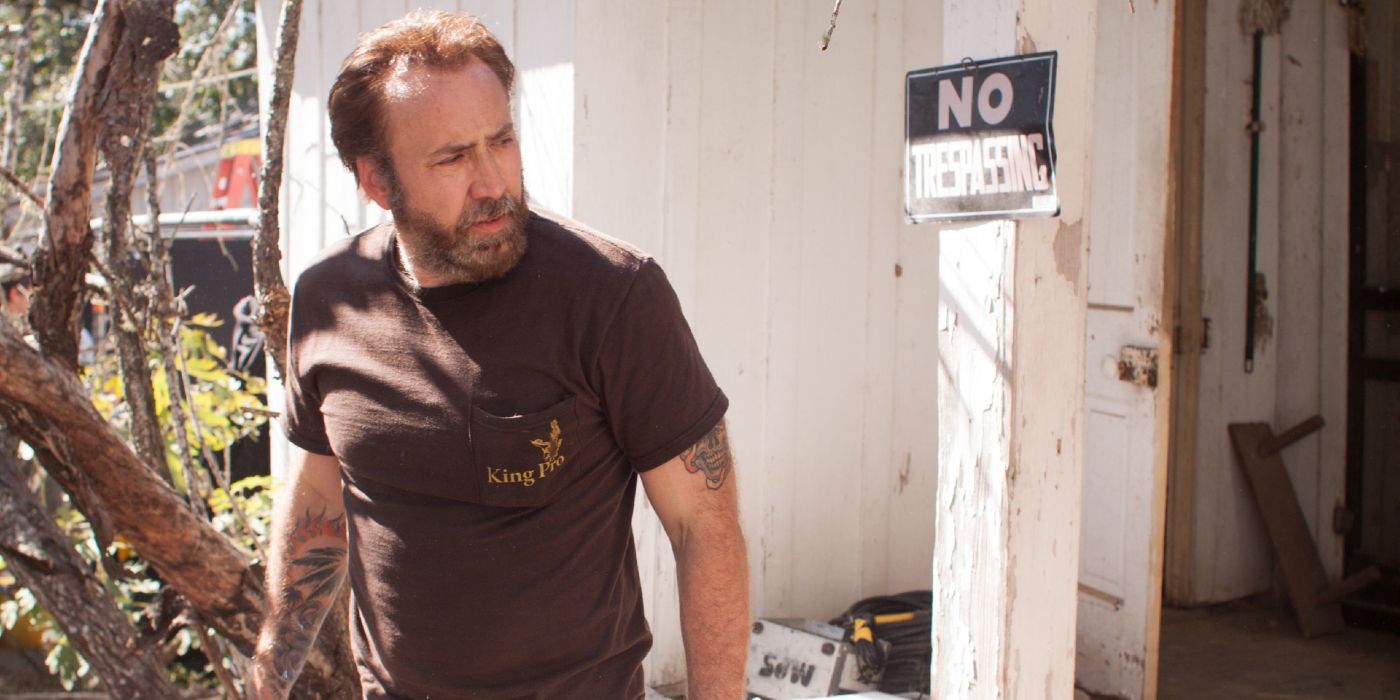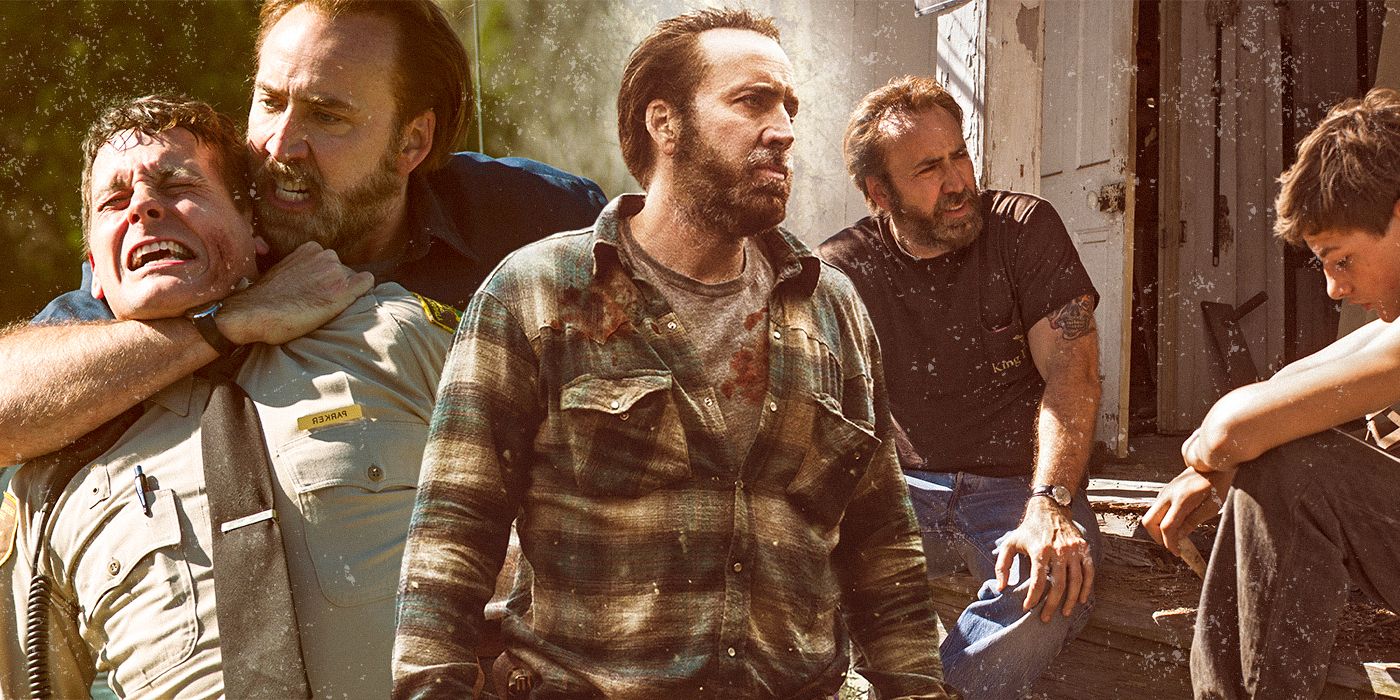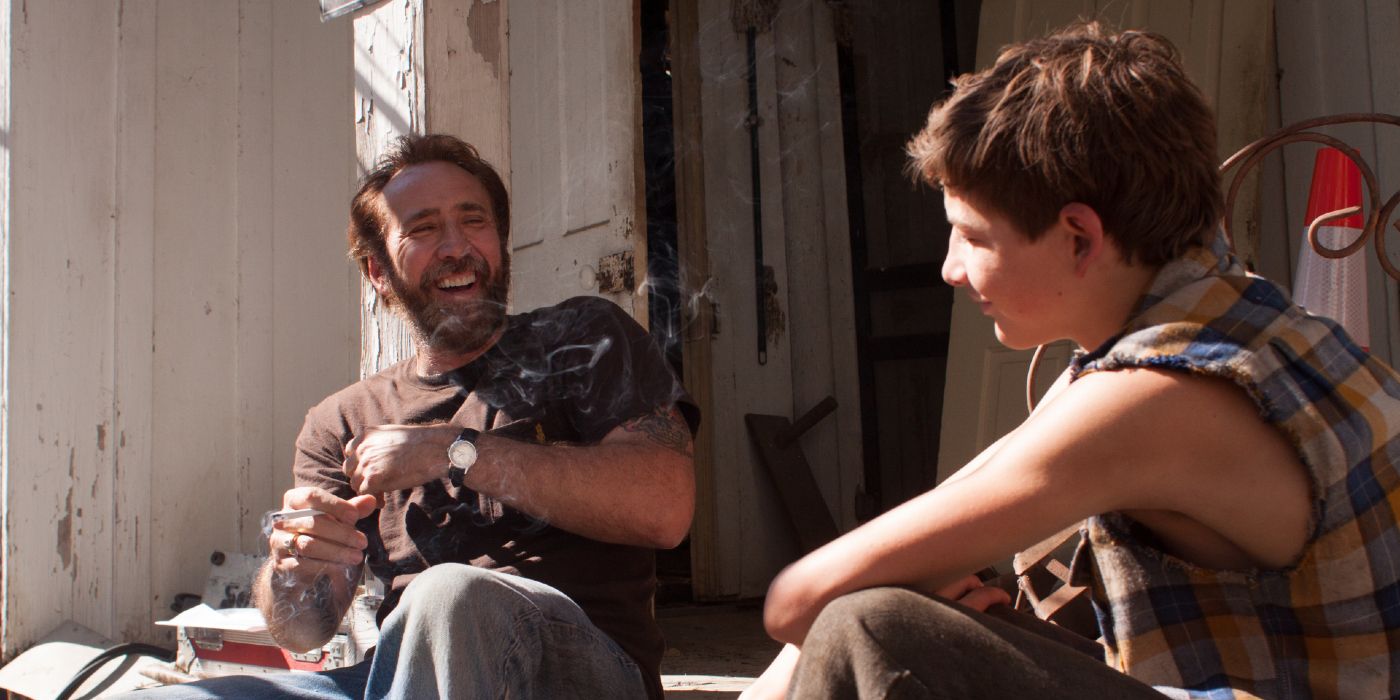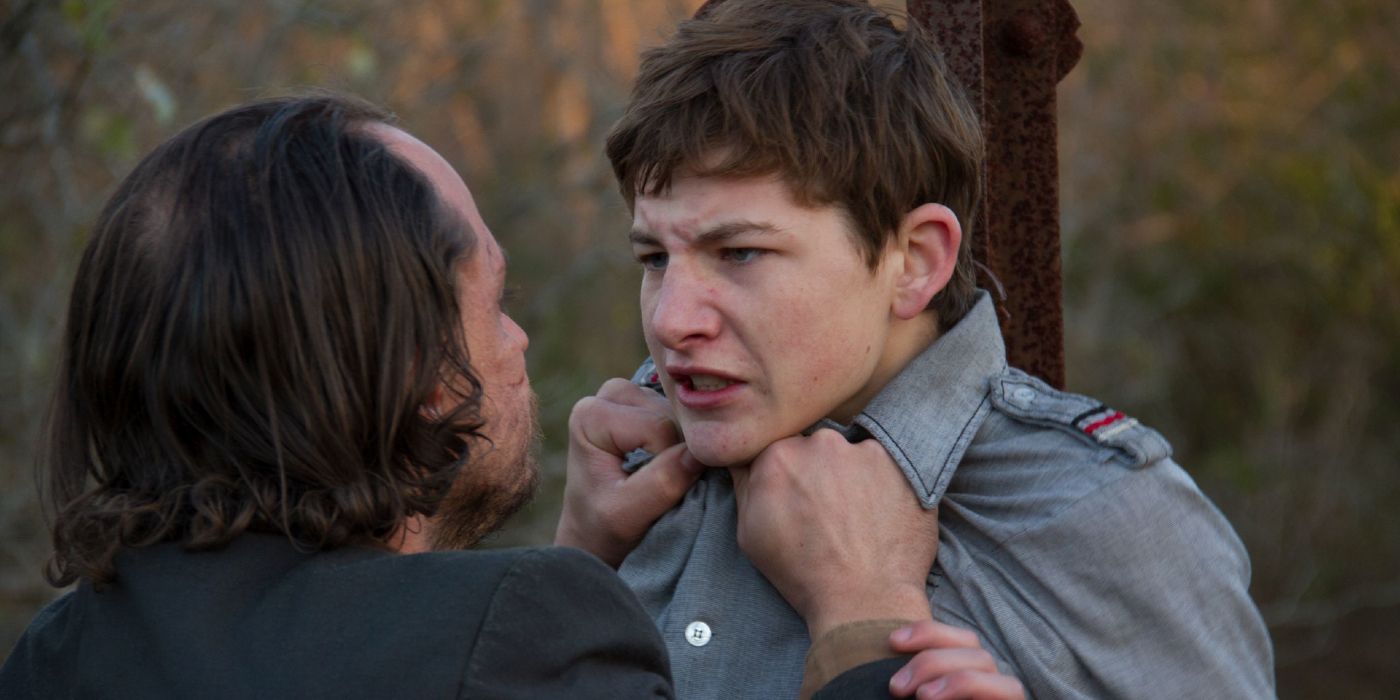Determining what constitutes a “great” Nicolas Cage performance can be a challenge. Cage certainly has beloved classics like Leaving Las Vegas, Adaptation, or Wild at Heart under his belt, but his onscreen persona is often most closely associated with the wildness of Vampire’s Kiss or Bad Lieutenant: Port of Call New Orleans. He’s been frequently mocked for the decline in the quality of his work over the past decade, but he’s also indicated that he’s very self-aware of how he's viewed by the public.
Although his recent filmography is largely dominated by low-budget trash, he’s also leaned into his eccentricities to deliver memorable recent work in Kick-Ass, Mandy, and The Trust. However, Cage has never lost the ability to bring heartbreaking authenticity to a role and show that his performances are adaptable to more subtle, serious characters. David Gordon Green’s 2013 drama Joe features Cage in one of his darkest, most moving roles, and it's one of the most underrated performances of his career.
Nicolas Cage Excels in a More Nuanced Role Joe casts Cage as the titular Joe Ransom, a woodsman who manages his own crew in the wilderness of central Texas. Joe isn’t a character quick to make friends, dropping hints to his trusted coworkers about his struggles to manage anger and alcoholism. He’s a man scared of interacting with anyone out of fear that he’d end up hurting them.
Joe casts Cage as the titular Joe Ransom, a woodsman who manages his own crew in the wilderness of central Texas. Joe isn’t a character quick to make friends, dropping hints to his trusted coworkers about his struggles to manage anger and alcoholism. He’s a man scared of interacting with anyone out of fear that he’d end up hurting them.
Joe is skeptical about adding anyone new to his inner circle, but he makes a rare exception when lost teenager Gary (Tye Sheridan) approaches him about work. Joe doesn’t immediately let his guard down; he only allows Gary to join his team when the 15-year-old drifter proves to be an expert at poisoning trees so Joe’s crew can hack them down. Despite Gary being an isolated teenager, Joe’s expectation that he deliver the same quality of work as a man twice his size isn’t treated as an idiosyncrasy, but as a necessary skill Gary needs to survive in this profession.
Yet it's not just Gary’s work ethic that drives Joe to mentor the young boy. Gary’s father Wade (Gary Poulter) shows clear signs of abusive and alcoholic behavior toward his son. Joe knows these signs all too well, and Cage is fantastic in exploring Joe’s soul-searching as he weighs the difficult decision in front of him. Does he have a responsibility to protect a defenseless kid who needs guidance more than anything, or could entering this family quarrel lead him back down the path of violence he’s sworn he would never return to?
The tension rises as Joe begins to let his guard down around Gary. Gary has his own hesitations about trusting a potential father figure, and first only presses Joe for details on how to perfect his woodsman craft. Cage is fantastic at letting personal details slip out as he trains Gary for their subsistence living; for him, survival is the only motivator, as he rarely experiences any source of happiness due to his complicated past.
Cage's Performance Boosts Those Around Him
Cage is able to bring out the best in Sheridan, and you can see the younger actor adapting to Cage’s nuanced approach. At the time of filming, Sheridan had recently been mentored by another veteran actor when he co-starred alongside Matthew McConaughey in Mud. The two films are actually quite similar in their premises, but Mud cast Sheridan as a more angsty character actively seeking out the adventure and danger that McConaughey's character provides. In Joe, he only engages with Cage out of necessity.
The conversations between Cage and Sheridan are terrific showcases for both actors’ range. Green’s dialogue is rarely poetic, and the film’s locations are stripped down to the bare minimum, conveying the sense of seclusion felt by the characters. A sequence as simple as Gary aiding Joe as he searches for a lost dog establishes the only joy to be found in this bitter world, and Joe’s gift of a lighter to Gary at the end of the search comes as the first act of kindness in a film that had been completely cold up to that point.
The patient storytelling and subdued performance make Joe’s explosive rage more effective later on when he finally takes out his pent-up anger on Wade. Joe has suffered in silence as his animosity towards the cruel man escalates, and he’s finally pushed to his breaking point when Gary’s safety is threatened. It’s a brilliant moment from Cage; while the audience has been silently rooting for Joe to resolve the situation, his drastic escalation becomes terrifying when Joe shows just how dangerous his wrath can be.
The Tragedy of 'Joe'
Tragically the film doesn’t go for the easy solution where Joe can step in as Gary’s new paternal figure, as Wade’s own checkered history draws the trio into a dangerous web of crime. Cage is able to be vulnerable here without descending into campiness. Joe’s entire lifestyle is built around recovery, and now he’s forced to make split-second decisions to determine both his and Gary’s future without time to consider the consequences.
The film is also a case in which Cage’s physical transformation fits the role perfectly. Reportedly eating only red meat to prepare for his role as a wilderness worker, Cage transforms into a hulking and intimidating figure who is believable as a man versed in his trade. Cage’s eccentric preparation for his roles is often lampooned, but Joe is a case where it improves the film’s authenticity.
Cage’s star power helped this smaller drama gain recognition, and as a result, it spotlighted a real tragedy that wouldn’t have been given the same attention otherwise. Poulter died tragically only months before the film’s release, and throughout the shoot, he had suffered from homelessness and debilitating illness. Poulter’s death is a tragedy, and thankfully his last performance reached a wider audience due to Cage’s involvement with the project.
It’s fun to watch YouTube mashups of the wildest Nicolas Cage moments, and the infamous “Not the bees!” moment from The Wicker Man will never not be funny. Cage is often in on the joke, but he also deserves to be taken seriously when he tackles more grounded work. Joe is a film that rests on his shoulders, a worthy reminder of why Cage is one of the most inventive and surprising actors of his time.



